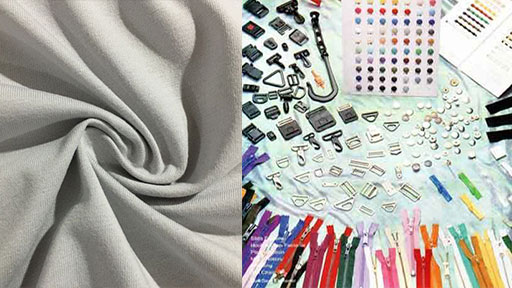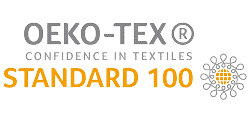
Fabric and Accessory Process
Fabric and accessory supply is one of the cornerstones of a successful production process in the textile and fashion industry. Choosing the right fabric and accessories directly affects product quality, aesthetics and functionality. Here are some important points about fabric and accessory supply and selection.
- 1. Fabric Types and Features:
- Cotton: A breathable, soft and natural material. Ideal for daily wear.
- Polyester: A durable, lightweight and fast-drying material. Suitable for sportswear and outerwear.
- Wool: A warm and breathable material. It is used in winter clothes.
- Silk: A shiny, soft and luxurious material. It is preferred for special clothing and accessories.
- Camisole: A flexible and body-fitting fabric. Suitable for undershirts and underwear.
- Fleece: A warm and lightweight material. It is used in cold weather clothing.
- 2. Suppliers:
- – Local Suppliers: Provides faster delivery and easier communication.
- – International Suppliers: Offer a wider range of products and often offer more competitive prices. However, delivery times may be longer.
- 3. Fabric Quality:
- – Weaving Density: Higher weaving density indicates that the fabric is more durable and of higher quality.
- – Color Retention: It is important that the color of the fabric does not fade during washing and use.
- – Feel and Flexibility: The texture and flexibility of the fabric are important for the comfort and aesthetics of the product.
- 4. Sustainability:
- – Organic and Recycled Fabrics: Supports environmentally friendly production processes.
- – Certificates: Certificates such as Okeo-Tex, GOTS show that the fabric does not contain harmful chemicals and is environmentally friendly.
Accessory Supply and Selection
- 1. Accessory Types:
- – Buttons: Can be made of various materials such as plastic, metal, wood.
- – Zippers: Made of metal or plastic materials. Durability and ease of use are important.
- – Cords and Ribbons: Used in clothing details and decorations.
- – Labels: Used for branding and care instructions.
- 2. Suppliers:
- – Specialty Manufacturers: Suppliers who specialize in a particular type of accessory.
- – General Suppliers: Suppliers offering a wide range of accessories.
- 3. Quality and Durability:
- – Material Quality: It is important that the accessories are long-lasting and durable.
- – Functionality: Functionality elements such as zippers working smoothly and buttons being intact should be taken into consideration.
- 4. Aesthetics and Harmony:
- – Color and Design: Accessories must match the fabric and overall design.
- – Details: Small details affect the overall appearance and quality of the product.
Procurement Process and Tips
- 1. Market Research:
- – Get quotes from various suppliers and compare product quality.
- 2. Sample Request:
- – Before placing a large order, ask for samples from suppliers and evaluate their quality.
- 3. Long-Term Relationships:
- – By establishing long-term relationships with reliable suppliers, you can optimize quality and costs.
- Choosing the right fabric and accessories both increases product quality and ensures customer satisfaction. Therefore, it is important to approach these processes carefully and manage them meticulously.






